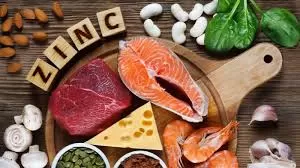- 0086-571-85302990
- sales@greenskybio.com
Iron Imbalance, Not Hormones, Linked to Perimenopausal Brain Fog
2025-06-06
A significant number of women experiencing brain fog during perimenopause may not be suffering from hormone deficiencies, as long believed, but rather from correctable iron imbalances, a new University of Oklahoma study finds.
The research reveals that cognitive decline during perimenopause can occur even when a woman’s iron levels fall within the normal range—if they are not adequately optimized for her age. Encouragingly, the study suggests that dietary changes to increase iron intake can restore mental clarity, offering a safe alternative to synthetic medications that carry potential risks, including increased brain iron accumulation associated with Alzheimer’s disease.
Traditionally, women experiencing memory issues and sluggish cognition as they approach menopause have been told such symptoms are unavoidable. Physicians frequently recommend hormone replacement therapy (HRT) or antidepressants, often overlooking simpler solutions such as addressing subtle nutritional deficiencies. However, this new peer-reviewed data supports what advocates of natural health have long maintained: Iron is critical for cognitive health, and appropriate dietary adjustments may alleviate one of menopause’s most disruptive symptoms.
The Science Connecting Iron and Brain Function
Published in the journal *Nutrients*, the study followed 39 perimenopausal women with either low or normal iron levels (none were anemic). Through bloodwork, MRIs, and cognitive testing, researchers determined that women with less-than-optimal iron performed worse on memory and attention assessments. EEG scans confirmed that this group also exhibited weaker brain electrical signals. In contrast, women with sufficient iron demonstrated sharper cognitive function.
Lead investigator Dr. Michael Wenger explained the everyday impact: “If I were to give a woman with iron deficiency a simple task, the deficiency would cost her about 150 milliseconds per decision.” While this may sound insignificant, such delays add up during complex mental activities like problem-solving or engaging in conversation.
Iron was found to support four essential brain functions: producing myelin (to insulate nerve fibers and speed up communication), synthesizing neurotransmitters such as dopamine and serotonin, supplying energy to nerve cells by aiding oxygen transport, and enhancing the formation of new nerve connections.
Crucially, the study dispelled fears that boosting blood iron leads to harmful brain iron buildup. “Having iron levels that are at or above what you should expect for your age does not mean you’re accumulating more iron in your brain,” Wenger emphasized. This paves the way for women to target optimal iron intake without concern for long-term brain risks.
Natural Strategies to Boost Iron
Unlike HRT, which comes with documented risks such as blood clots and certain cancers, increasing dietary iron is a safe and accessible option. Nutritionist Vandana Sheth recommends consuming animal sources like oysters, chicken thighs, and salmon alongside leafy greens such as spinach. For those on plant-based diets, iron-fortified cereals, chickpea-quinoa salads, or tofu stir-fries with vitamin C-rich vegetables can help boost iron absorption.
Experts caution against high-dose iron supplements, which the National Institutes of Health warns may cause nausea and ulcers. However, dietary adjustments pose little risk. “If a woman has suboptimal iron levels and makes simple changes in her diet, she could reach optimal levels within three months,” said Wenger.
A Gap in Standard Medical Practice
Despite mounting evidence, most OB-GYNs do not routinely screen for iron deficiency unless anemia is evident. “Low iron could easily be one of the reasons a woman is experiencing brain fog during the menopausal transition,” Wenger noted. Heavy menstrual bleeding, common in perimenopause, further depletes iron stores—a factor frequently overlooked in mainstream care.
This research offers women a non-pharmaceutical path to improving mental function during menopause. Prioritizing iron-rich foods may help dispel the myth that brain fog is an unavoidable part of aging. While the medical industry often focuses on costly, symptom-masking treatments, the key to a clearer mind may be as straightforward as a nutrient-packed meal.
-
Goldenseal: A Historic Herbal Remedy at Risk
2025-06-06















